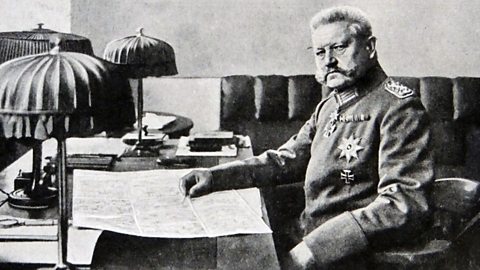More guides on this topic
- Germany before World War One, 1890-1914 - AQA
- Weimar Germany, 1918-1924 - AQA
- Germany and the growth of democracy quiz
- Weimar recovery and Stresemann, 1924-1929 - AQA
- Hitler into power, 1929-1934 - AQA
- Germany and the depression quiz
- Life in Nazi Germany, 1933-1939 - AQA
- Experience under the Nazis quiz
- World War Two and Germany, 1939-1945 - AQA
- Weimar Germany - exam preparation - AQA
